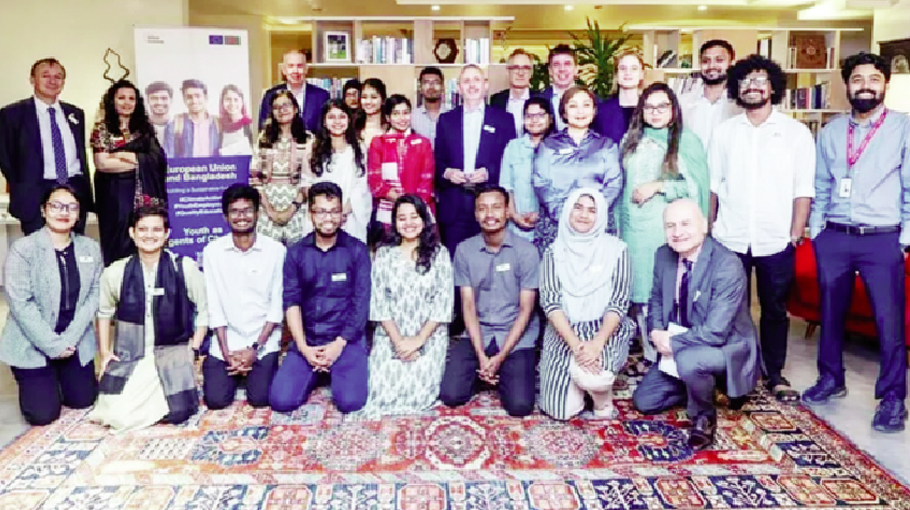Bangladesh calls for equitable climate solutions, global support to boost its resilience

Environment, Forest, and Climate Change, and Water Resources Adviser Syeda Rizwana Hasan has emphasised the role of youth, stating that youth in Bangladesh have always been powerful change makers, as history shows, and called for equitable climate solutions and global support to enhance Bangladesh’s resilience.
She highlighted the government’s commitment to further engage youth in climate action and urged all developed countries to follow through on their commitments to climate finance and technological support for countries on the frontlines of climate vulnerability.
The EU Delegation to Bangladesh and the Embassy of Sweden in Dhaka co-organised a roundtable on “Youth as Agents of Change.”
The aims were to discuss the role of youth in addressing climate change ahead of this year’s international climate summit, COP29, and to highlight how young leaders can influence policies and actions in Bangladesh and abroad.
The EU Ambassador, Michael Miller, and Swedish Ambassador, Nicolas Weeks, along with the Italian Ambassador, Antonio Alessandro, and representatives from the EU Member States Germany, France, Denmark and the Netherlands, offered a platform for an open and equal dialogue with 18 youth representatives from various organisations, each actively engaged in the COP process.
The central theme throughout the dialogue was that climate change mitigation and adaptation need to go hand in hand.
All parties must make greater efforts to integrate and mainstream climate change adaptation and resilience into relevant existing policies, strategies, and actions, they said.
“The EU calls for an ambitious and balanced COP29 outcome that keeps the 1.5°C temperature goal within reach, in light of the best available science, moves us all forward towards long-term resilience, and includes agreement on an effective, achievable, and ambitious new collective quantified goal,” said EU Ambassador Miller, who also emphasized the importance of following through with the outcomes of COP28 in Dubai.
At COP29, the EU will continue to stress the importance of scaling up mitigation ambition and implementation in this critical decade. This is the only way we can achieve the goal of limiting global warming to 1.5°C. If we do not reach this goal, the consequences will be severe for climate- and disaster-vulnerable countries like Bangladesh, added Swedish Ambassador Weeks.
“Financing from the Global North shouldn’t hinder the right to development for any country, including the country who will finance. At the same time, the right to development should address the most vulnerable,” said Farzana Faruk Jhumu, Youth Advocate from UNICEF Bangladesh.
“We, the youth, want to ensure climate justice for Bangladesh and the world. We need to be integrated into the government processes, especially the NDCs (Nationally Determined Contributions) in a more formalised way. The government needs to provide youth with avenues to become well-informed in order for youth to contribute more meaningfully,” said youth climate activist, Amanullah Porag, who founded and heads the initiative, Youth4NDCs.
The event brought together civil society, academia, Team Europe partners and youth climate leaders, as well as representatives from the Ministry of Environment, Forest, and Climate Change, and the Ministry of Water Resources.
The EU and its Member States are major financiers of climate adaptation.




